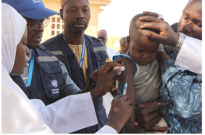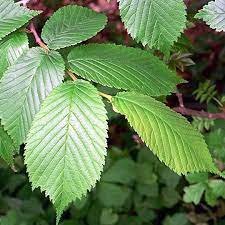Vaccination against yellow fever A campaign to run from 24 to 30 July 2024 in Douala

This campaign comes at a time when the number of cases of yellow fever in Cameroon has been rising steadily since 2021. According to official data, Cameroon reported 49 probable cases of yellow fever between 1 January 2021 and 13 June 2022. In 2023, 63 positive cases were recorded in 30 health districts, with 5 deaths. This increase in cases has prompted the Cameroonian authorities to launch a response vaccination campaign scheduled to run from 24 to 30 July 2024. The campaign targets people aged between 9 months and 60 years in the Littoral region.
The resurgence of yellow fever in Cameroon is due to several factors. According to official data, Cameroon reported 49 probable cases of yellow fever between 1 January 2021 and 13 June 2022. Every region of the country is affected. In 2023, 63 positive cases were recorded in 30 health districts, with 5 deaths. This increase in cases led the Cameroonian authorities to launch a response vaccination campaign scheduled to run from 24 to 30 July 2024. The campaign targeted people aged between 9 months and 60 years in the Littoral region. Yellow fever vaccination coverage has fallen in Cameroon in recent years, making the population more vulnerable to the disease. “I caught yellow fever on a trip to Africa. I started feeling ill with a fever and headaches. I also had muscle pains and nausea. I was hospitalised for several weeks and nearly died,” explains Romain. Yellow fever is a serious viral disease transmitted by mosquitoes. It can cause symptoms such as fever, headaches, muscle aches, nausea and vomiting.
In some cases, it can be fatal. “My son contracted yellow fever when he was a baby. He had a very high fever and convulsions. He also became jaundiced, which means that his skin and eyes turned yellow. “Fortunately, he recovered, but he nearly died,” explains Hermine, a teacher. The best way to protect yourself against yellow fever is to get vaccinated. The yellow fever vaccine is safe and effective, and it can save your life. “I’ve lived in a region where yellow fever is endemic all my life. I’ve seen many people die from this disease. “It’s a terrible disease and it’s important to get vaccinated to protect yourself,” says Patrick. If you are travelling to an area where yellow fever is present, it is important to take steps to avoid mosquito bites. You can do this by wearing long, loose-fitting clothes, using mosquito repellent and sleeping in air-conditioned rooms or with mosquito nets.
Climate change can encourage the proliferation of yellow fever mosquitoes. The mobility of populations, particularly through migration and cross-border travel, can facilitate the spread of the disease. It’s important to get vaccinated against yellow fever if you’re travelling to a country where the disease is present. The yellow fever vaccine is safe, effective and free of charge in public health centres in Cameroon.
The World Health Organisation (WHO) plays a crucial role in the fight against yellow fever worldwide. Thanks to its actions, the number of cases and deaths has fallen considerably in recent years. However, yellow fever remains a threat to public health in many parts of the world. The WHO continues to work to eliminate yellow fever as a public health problem. In 2017, WHO launched the Global Strategy for the Elimination of Yellow Fever Epidemics (EYE).
This strategy aims to eliminate yellow fever by 2030. In 2023, the WHO coordinated a mass vaccination campaign against yellow fever in Africa. More than 60 million people have been vaccinated as a result of this campaign. The WHO is also working on the development of a new yellow fever vaccine. This new vaccine is expected to be safer, more effective and more affordable than the currently available vaccine. The WHO’s commitment to the fight against yellow fever is an essential element in the fight against neglected tropical diseases. Through its actions, the WHO is helping to improve the health and well-being of people in the world’s poorest countries.
Elvis Serge NSAA















